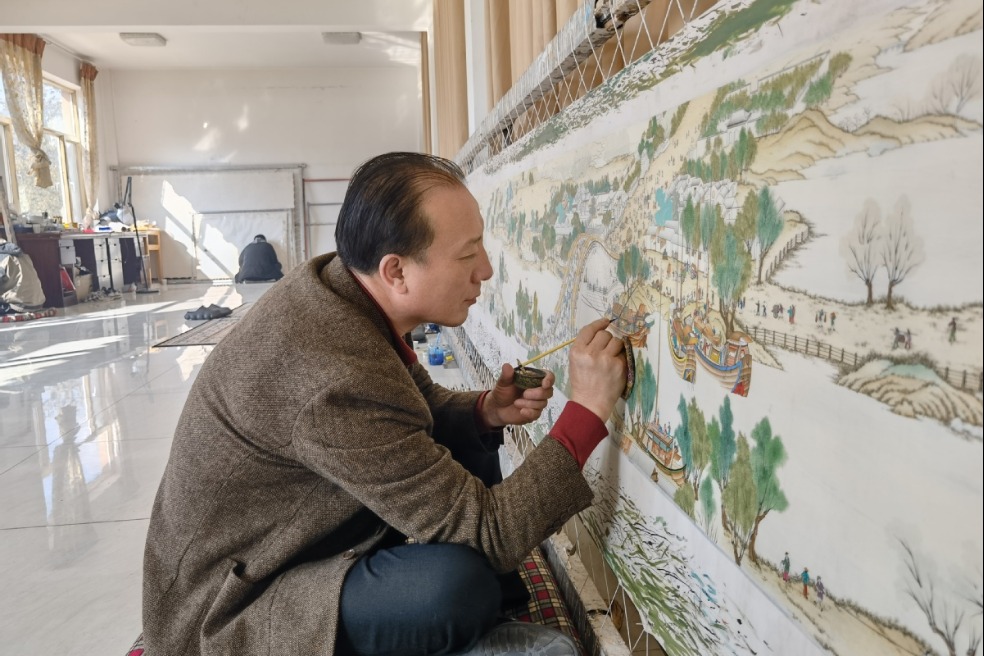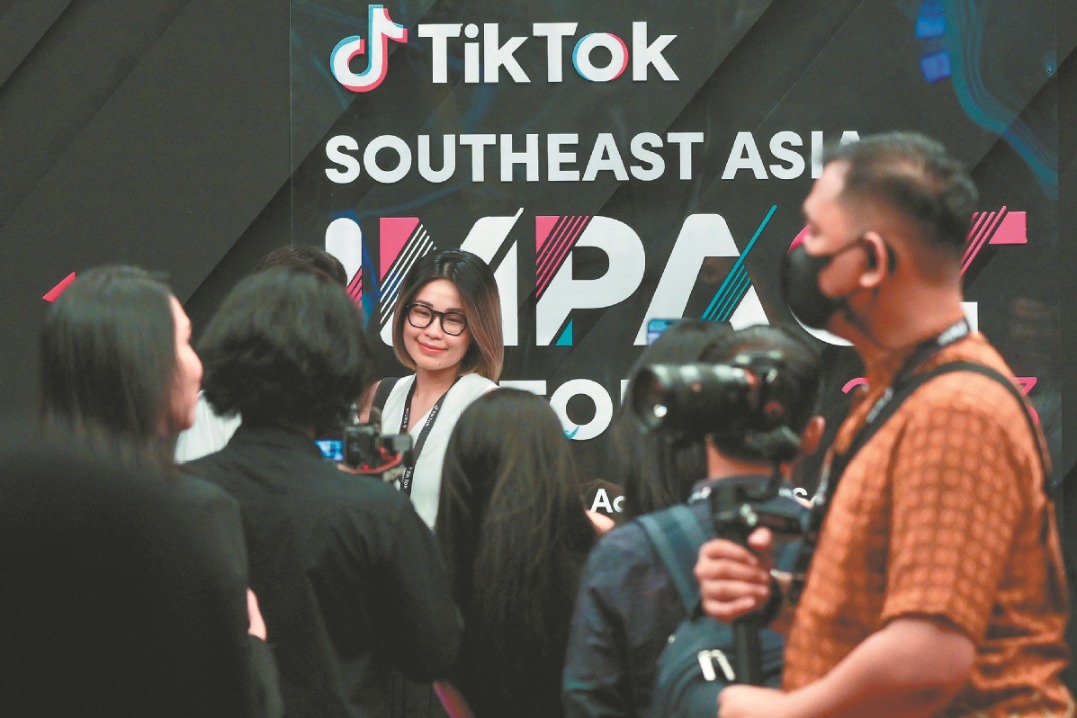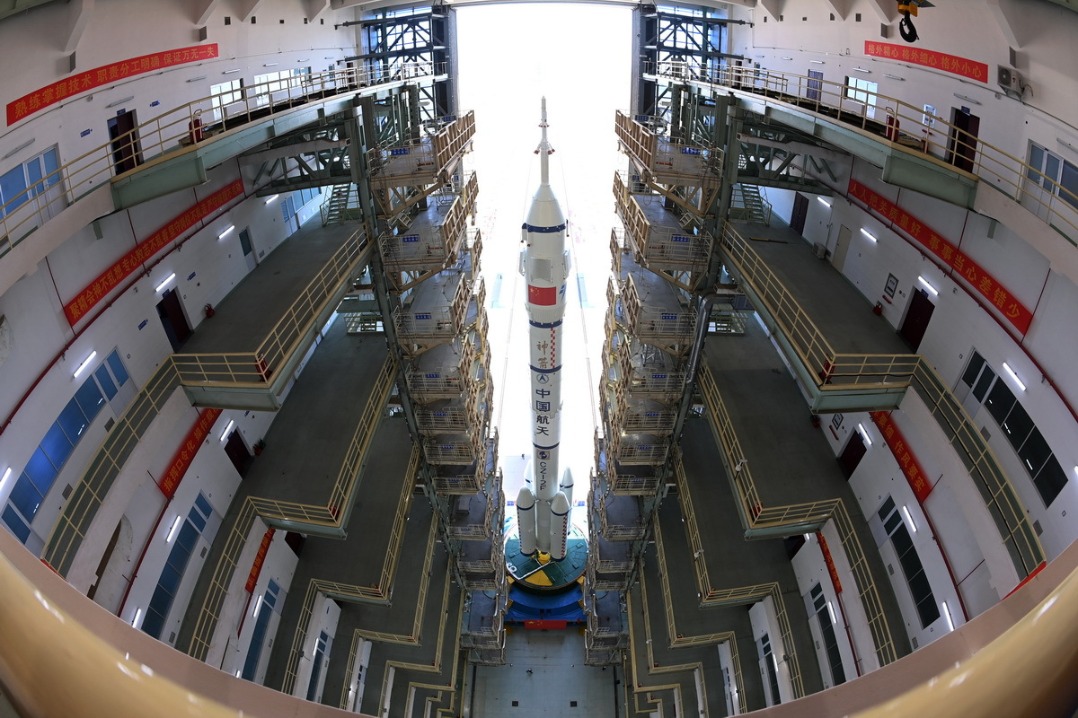BCG: Generative AI tools to gain more ground in banking
By FAN FEIFEI | China Daily | Updated: 2023-08-10 09:10

As application speeds up, consultancy underscores fairness, accountability
As fast-developing generative artificial intelligence technology is expected to be applied in various links of the banking industry, more efforts are needed to ensure the safe and responsible use of AI, given that data security emerges as a rising priority, according to a report released by global consultancy Boston Consulting Group.
The report said that generative AI will replace human beings in doing a large number of repetitive, simple and basic tasks, thus reducing costs and improving operational efficiency. It will also give birth to new business models and bring about disruptive changes to the banking industry.
Although the use of generative AI in the banking sector is currently in a trial phase, it will cover multiple scenarios, such as sales, operations, product development and investment consultation services, it noted, adding that the application prospects of such cutting-edge technology in banks are broad and promising.
The report said that as for promoting the large-scale commercial use of generative AI, more push is needed to improve computing capacity, optimize the training of large language models (LLMs) and safeguard the security of data, which means fine-tuning and the deployment of LLMs in the banking industry should be done locally.
How to leverage new technologies to promote the transformation of the banking industry has become a proposition that the whole industry should think about deeply, said He Dayong, managing director and senior partner of BCG, underscoring that banks should speed up the application of generative AI to seize opportunities amid the new wave of change.
Generative AI refers to algorithms that are trained with huge amounts of data and capable of generating content such as images, text, audio and video. It is the key technology underpinning ChatGPT, an AI chatbot developed by US-based AI research company OpenAI that has taken the tech world by storm.
This technology is expected to usher in speedy growth in China and inject fresh momentum into a new industrial revolution, as major Chinese tech heavyweights step up efforts to develop their own AI-powered LLMs, experts said.
Alibaba Group unveiled its AI-powered LLM Tongyi Qianwen in April, a potential rival to ChatGPT. In March, Baidu Inc rolled out its LLM and Chinese-language ChatGPT alternative, Ernie Bot, which can be used for a variety of functions, including searches, autonomous driving and smart devices.
Although AI brings new development opportunities, there are still challenges to face. Sun Wei, partner of BCG and core leader of the BCG financial institutions practice, said, "It is important for banks to establish a responsible AI system and ensure the fairness, accountability, transparency, privacy and security in the application of generative AI."
She called for greater efforts to formulate a code of conduct for employees who use generative AI tools, guide them to reasonably judge and use the content output by machines, and establish management mechanisms concerning risk control and liability affirmation.
The People's Bank of China, the central bank, recently released draft rules to strengthen data security management in the financial sector and guide financial institutions to process data generated or collected via their business activities in compliance with laws and regulations.
Last month, the Chinese authorities issued a 24-item guideline for managing generative AI services, which will take effect on Tuesday. The country will encourage the innovative development of generative AI and supervise the technology using methods compatible with innovation and development, according to interim measures.
Sun said these measures for managing generative AI services will encourage more companies to pay greater attention to this emerging technology and bolster its development and application.
Market consultancy Gartner predicts that by 2025, generative AI will account for 10 percent of all data created, compared with less than 1 percent last year, and it could be used for activities such as creating software code, facilitating drug development and targeted marketing.
Lu Yanxia, research director at market research company IDC China, said, "Generative AI has brought new business opportunities for domestic AI servers, cloud computing and chip companies."
ChatGPT-related technologies are likely to free humans from tedious tasks and enable them to focus on creative thinking, resulting in significant application potential in fields such as finance, culture, retail, healthcare and education, she added.
























